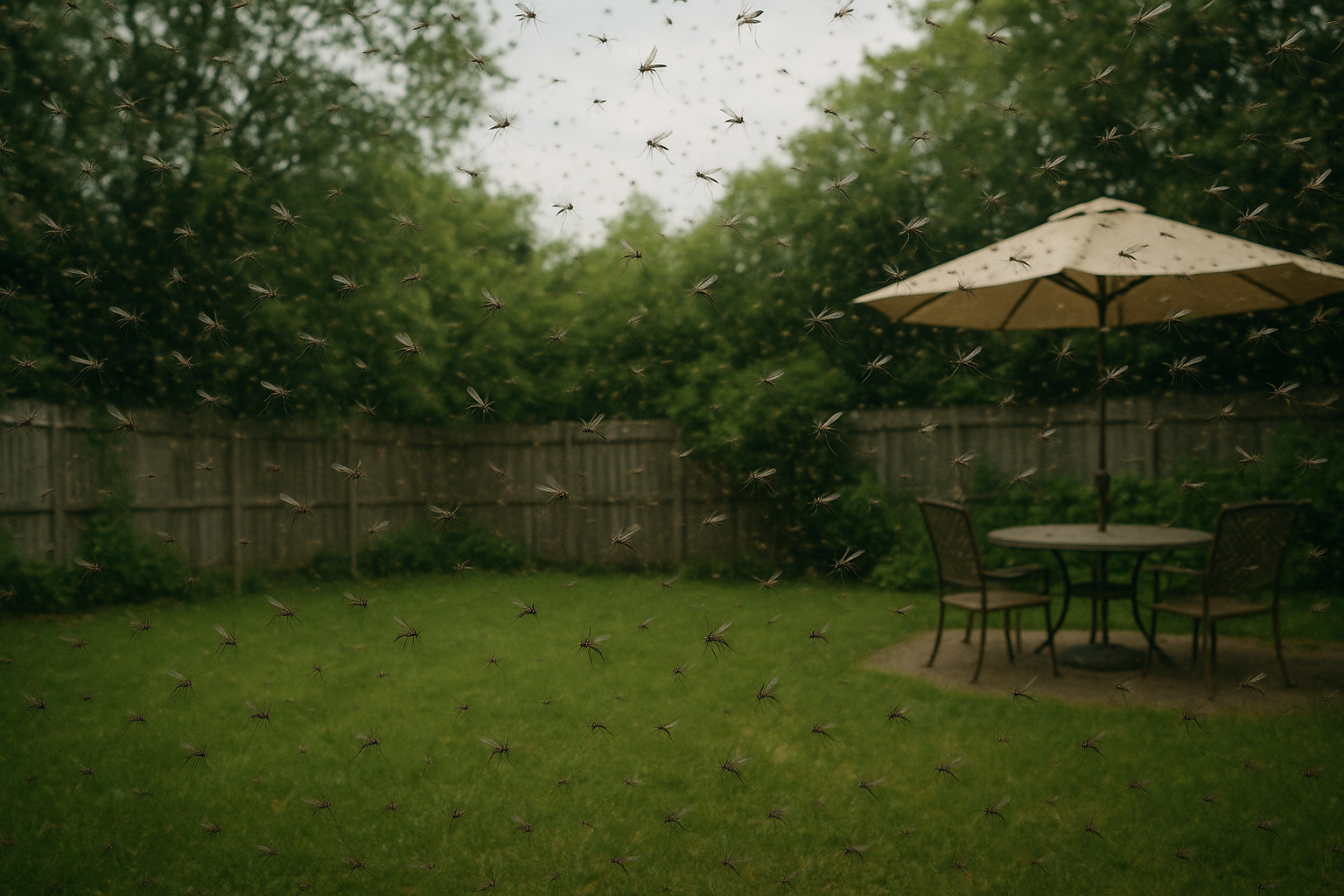Understanding Where Mosquitoes Live and Breed
What Are Mosquitoes and Why Their Habitats Matter
Mosquitoes are small, flying insects belonging to the Culicidae family. While they are often seen as pests, they play a role in ecosystems by serving as food for birds, bats, and other predators. However, their ability to transmit diseases like malaria, dengue fever, and Zika virus makes them a significant public health concern. Understanding where mosquitoes live and breed is crucial for controlling their populations and reducing the risk of disease transmission. By identifying their habitats, we can implement targeted strategies to disrupt their life cycle and minimize their impact on human health and comfort.
Mosquitoes are highly adaptable creatures, capable of thriving in diverse environments. Their habitats are influenced by factors such as temperature, humidity, and the availability of water. Knowing where mosquitoes are most likely to live and breed allows homeowners, communities, and public health officials to take proactive measures to manage infestations effectively. Call 919-726-3785 today for a free quote or to schedule a service in Durham NC.
Common Places Where Mosquitoes Live
Mosquitoes are found in nearly every corner of the globe, except for Antarctica. They are particularly abundant in tropical and subtropical regions, where warm temperatures and high humidity create ideal conditions for their survival. However, mosquitoes are not limited to these areas; they can also thrive in temperate climates during warmer months.
Urban areas provide plenty of opportunities for mosquitoes to breed, thanks to human activity and infrastructure. Stagnant water in poorly maintained drainage systems, discarded containers, and even flowerpots can become breeding grounds. Rural landscapes, on the other hand, offer natural habitats like ponds, streams, and marshes that support mosquito populations. Their adaptability to different climates and conditions makes them a persistent problem worldwide, including in Durham NC.
The Role of Water in Mosquito Breeding
Water is the cornerstone of mosquito reproduction. Female mosquitoes lay their eggs in or near stagnant water, where the larvae and pupae develop before emerging as adults. This reliance on water means that even small amounts of standing water can serve as breeding grounds. Common sources of stagnant water include:
- Ponds and puddles
- Birdbaths
- Clogged gutters
- Discarded tires
- Buckets and containers left outdoors
Even something as small as a bottle cap filled with water can support mosquito larvae. This is why eliminating standing water is one of the most effective ways to control mosquito populations. Regularly inspecting your property for potential breeding sites and taking steps to drain or clean them can significantly reduce the risk of infestation in Durham NC.
Natural Habitats of Mosquitoes
Mosquitoes thrive in natural environments that provide the resources they need to survive and reproduce. Wetlands, marshes, and forests are prime examples of mosquito-friendly habitats. These areas offer abundant water sources, vegetation for shelter, and a stable climate that supports mosquito activity.
Wetlands, in particular, are hotspots for mosquito breeding due to their combination of stagnant water and organic matter. Forests provide shade and humidity, which are essential for mosquito survival. These natural habitats are not only home to mosquitoes but also to other wildlife, creating a complex ecosystem where mosquitoes play a role as both predators and prey. Residents of Durham NC should be aware of these natural habitats to better manage mosquito populations.
Urban and Man-Made Mosquito Habitats
Human activity has inadvertently created numerous mosquito-friendly environments. Urbanization, construction sites, and poorly maintained infrastructure contribute to the proliferation of mosquitoes. For example:
- Construction sites often have standing water in open pits or containers.
- Discarded items like tires, cans, and plastic containers collect rainwater and become breeding grounds.
- Drainage systems that are clogged or poorly maintained can harbor stagnant water.
The impact of urbanization on mosquito populations is significant. As cities expand, they create more opportunities for mosquitoes to breed and thrive. This underscores the importance of proper waste management, infrastructure maintenance, and community awareness in controlling mosquito infestations in Durham NC.
Seasonal Patterns and Mosquito Activity
Mosquito activity is closely tied to seasonal changes. In warmer months, mosquitoes are more active due to favorable conditions like higher temperatures and increased humidity. Rainfall also plays a crucial role, as it creates new breeding sites by filling up containers, puddles, and other areas with water.
In temperate regions, mosquito populations peak during summer and decline in colder months. However, in tropical areas, mosquitoes remain active year-round. Understanding these seasonal patterns can help homeowners and communities in Durham NC prepare for mosquito control efforts during peak activity periods.
How to Identify and Eliminate Mosquito Breeding Grounds
Identifying mosquito breeding grounds is the first step in controlling their populations. Here are some practical tips:
- Inspect your property regularly for standing water in containers, gutters, and other areas.
- Drain or remove stagnant water from birdbaths, flowerpots, and buckets.
- Clean gutters to ensure proper drainage.
- Dispose of unused items like tires and cans that can collect water.
- Use larvicides in areas where water cannot be drained, such as ponds.
By taking these steps, you can significantly reduce the risk of mosquito infestations around your home and community in Durham NC. Call 919-726-3785 today for a free quote or to schedule a service.
The Impact of Climate Change on Mosquito Habitats
Climate change is altering mosquito habitats in profound ways. Rising temperatures and changing weather patterns are expanding the range of mosquito populations, allowing them to thrive in areas that were previously inhospitable. For example, warmer winters and increased rainfall create new opportunities for mosquitoes to breed and survive.
This expansion has serious implications for public health, as it increases the risk of mosquito-borne diseases in regions that were once unaffected. Understanding the link between climate change and mosquito habitats is essential for developing long-term strategies to mitigate their impact, especially in areas like Durham NC.
Preventing Mosquito Infestations: Best Practices
Preventing mosquito infestations requires a combination of individual and community-level efforts. Here are some best practices:
- Landscaping tips : Trim vegetation and remove debris to reduce mosquito shelter.
- Water management : Regularly inspect and drain standing water around your property.
- Use mosquito repellents : Apply EPA-approved repellents to protect yourself from bites.
- Community efforts : Participate in public awareness campaigns and support mosquito control programs.
By implementing these strategies, you can create a mosquito-free environment that protects your family and community in Durham NC from the risks associated with these pests.
Conclusion: Why Understanding Mosquito Habitats Is Key to Control
Understanding where mosquitoes live and breed is the foundation of effective mosquito control. By identifying their habitats and taking proactive measures to disrupt their life cycle, we can reduce their populations and minimize the risk of mosquito-borne diseases. Whether through individual actions or community initiatives, controlling mosquito habitats is a shared responsibility that benefits everyone.
Mosquito Authority of Durham NC delivers expert mosquito control services, mosquito and tick control, and pest control services. No contracts. Guaranteed results. Call 919-726-3785 today or visit our website.










